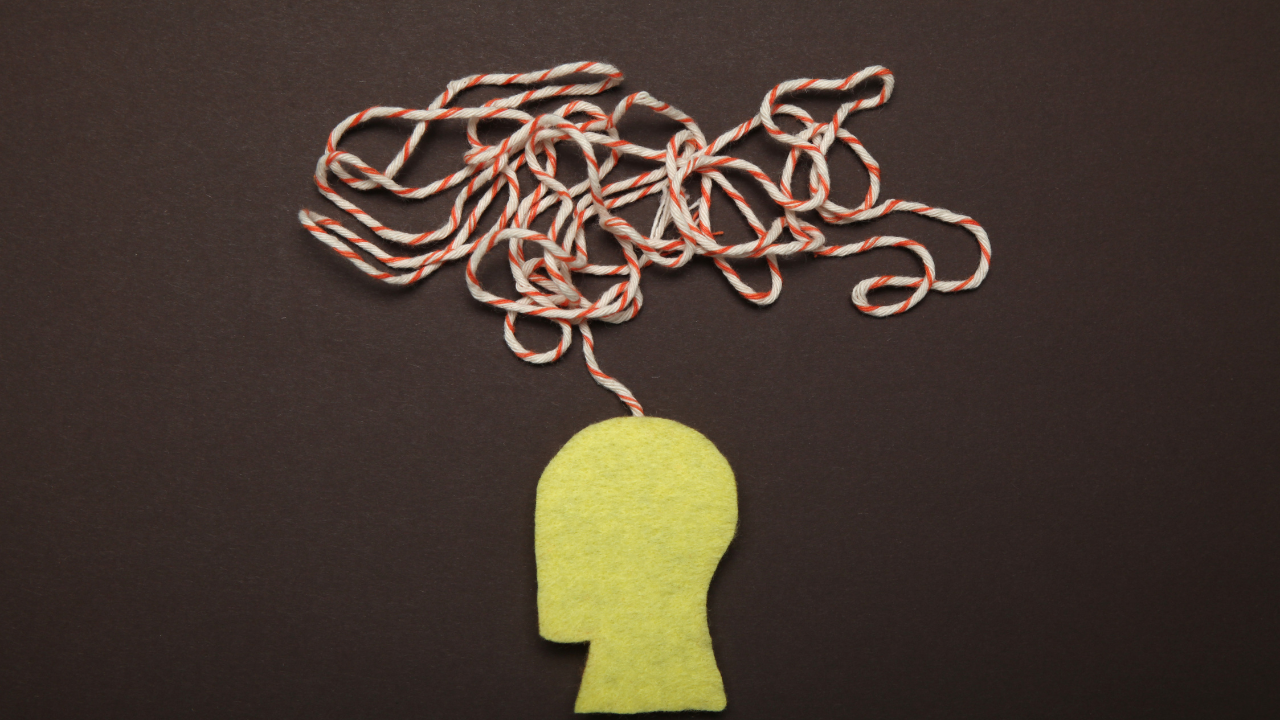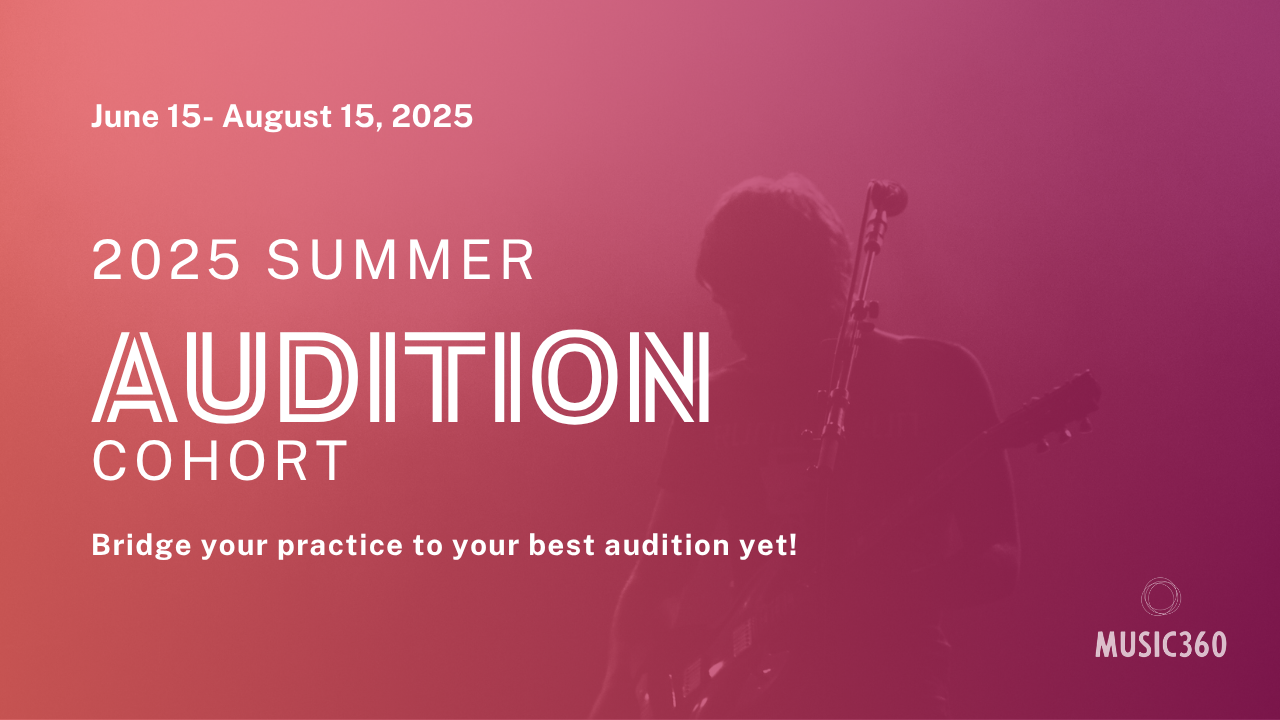The Reality of Music Performance Anxiety

by Anna Dunlap
Music Performance Anxiety (MPA) is incredibly prevalent in the field of classical music and can often be debilitating for many performers at some point or another in their career. Often linked to perfectionism, the culture of classical music can be one that fuels the MPA fire. In the article “Meditation as a tool to counteract music performance anxiety from the experts’ perspective,” Dr. David Juncos, a psychologist and performance coach, explains, “it’s sadly built into the culture of classical music to feel less than others or to feel ashamed of yourself because it is a very perfectionist environment.” In auditions, we feel like we are expected to perform absolutely flawlessly and that any little mistake will mean instantaneous elimination. In performances, mistakes often get blown up in our minds in the moment, causing the whole performance we spent countless hours preparing to go spiraling out of control.
You may be familiar with these manifestations of MPA in your own musical life, but what is the technical definition? MPA is defined in the psychological literature by P.G. Salmon (1990) as “the experience of persisting, distressful apprehension about and/or actual impairment of performance skills in a public context, to a degree unwarranted given the individual’s musical aptitude, training, and level of training.” Let’s break that down a little.
MPA is not just a little bit of nerves before a performance, but is a combination of various factors that contribute to the overall experience. According to Kensley Behel, the mastermind behind the “The Musician’s Health Club”, these can include your general mental health and personality (perfectionism, low self-esteem, fear of failure, general or social anxiety disorders; how prepared you are going into the performance or situation; the pressure you are feeling about the performance (like a really important audition); and/or equipment malfunction (reeds, strings, etc.). For me, it can be things like the “what ifs” start going off in my head, generally never saying anything good. I’ve felt less qualified than my peers and like I was destined to fail before I even really tried. The thought of going on stage felt like my flight response was in hyperdrive. And it would happen performance after performance, depleting the fun and love of music I once had, making it something I dreaded and hated doing for a long time.
It can also happen mid-performance and cause “actual impairment (Salmon, 1990).” This can include the physical symptoms that often accompany MPA like your hands shaking uncontrollably, your mouth going dry, your heart racing, feeling super tight in your muscles like they won’t cooperate, or feeling completely disconnected from your body. It can also include negative thoughts or ruminating on a mistake until it becomes your only focus. You might be someone who experiences memory lapses–as someone who has a strong visual memory, it feels like the mental image I have of the music goes blank and I can’t “see” what comes next. Your self-confidence goes out the window, you become increasingly self-critical, your perfectionism comes roaring in, and more and more you just want it to be over so you can go hide, have a good cry, and get out of there.
The public context is one that I will contend, a little, in the digital age. For me, personally, it can also be the anticipated audience that will hear something that I am recording. So even if I am at home, alone, recording for an audition or a competition or whatever the case may be, my MPA will still often kick into high gear. Recording becomes tortuous, as any little mistake will often trigger me to restart the whole thing because it feels like if I can’t look past it, why would anyone else? This becomes exhausting and physically taxing, recording the same repertoire over and over and over again until any joy I had from the music is gone, everything is tightly contained in its little box, my body is tight from hours of sitting in the same place, and often my frustration gets the best of me and boils over as I rage at myself for not being enough. Not perfect enough. Not able to do it well enough. Not able to keep focused long enough. And with recording you have that option to restart and try again, which is a double edged sword. Great when something goes horrendously off the rails, or a string breaks, or a reed closes up, or a mallet goes flying mid-take. Not great when perfectionism is the only voice you’re hearing after a while, the self-criticism that you’re not good enough and why are you even bothering goes from a whisper to a deafening roar, and any little mistake will be enough to set you down a dark spiral again.
And often, MPA, if left to its own devices, can be debilitating even when you have done all the preparation you possibly could. It doesn’t always help to hear from mentors or friends that you are good enough or that you played beautifully because the MPA will convince you that they’re lying or somehow aren’t able to hear what you are hearing as so horribly wrong. It doesn’t always help to remind yourself that you have done wonderful, amazing things in the past because MPA will morph into imposter syndrome and you will feel like a trickster who has conned their way into the career or school or gig you have. Every hour spent practicing will feel like it has left you the instant MPA takes over, leaving you to feel underqualified and like you’re fumbling for an eternity in front of everyone. The mocks, the practice performances, the lessons, the coachings, and everything else will feel like they were for naught and why did you even bother trying in the first place.
We’ve all dealt with the heart wrenching feeling that our preparation failed us. And that is why MPA is something that needs to be talked about openly within the field of classical music. It needs to be something that teachers are comfortable addressing with their students, not telling them to be quiet about it or that if anyone hears that you are dealing with it, you will be seen as less than. We need to be compassionate towards those dealing with it, understanding that it is often out of their control what they are feeling or experiencing in the moment. Everyone from students to seasoned professionals face MPA; we shouldn’t be ashamed to talk about it and seeking help to find healthy coping strategies should be celebrated.
What are some healthy coping strategies? Therapy, medication like antidepressants and beta-blockers, regular exercise, different preparation techniques, mindfulness or meditation, finding practice methods that help prepare for MPA inducing situations, and more can be extremely beneficial for certain individuals under medical supervision. These interventions should be embraced! Personally, I’m relieved to see that the culture in classical music is starting to shift towards being kinder and more accepting of mental health struggles. But progress still needs to be made in how we recognize the complex humanity all musicians possess; we are more than our career and our instrument.
MPA is a specific type of struggle for musicians. If you’re looking for a community of like-minded musicians who want to improve their mindset in a holistic set of topics related to practice, performance, and career, we have two things for you!
- Register for one of our FREE workshops, “5 Mindset Musts for Musicians” happening on Aug 23 and Sept 6! REGISTER HERE
- Join our look no further than the Music360 Mindset Challenge starting September 11! The Mindset Challenge will provide a set of lessons plus workshops and discussions with leading experts in the field of music to address things like perfectionism, building resilience, working on mindfulness techniques, and more! For more information about this challenge check out this link!
Cheering for you, always!

